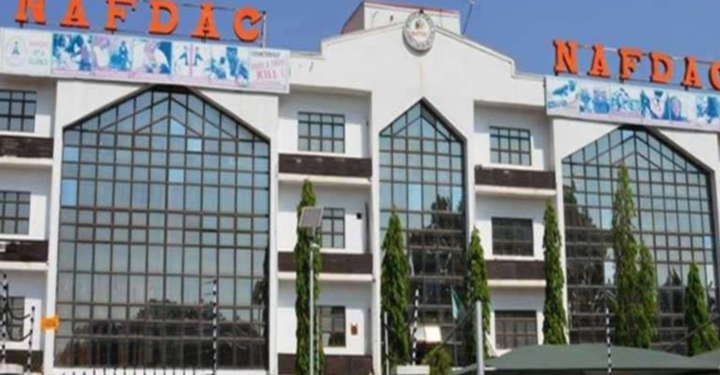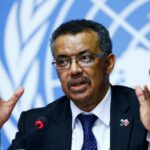The Central Public Health Laboratory (CPHL), in Lagos State, recently received World Health Organisation (WHO) full laboratory accreditation status as a result of its contribution to the fight against measles and Rubella in the country.
The CPHL is one of the laboratories under the Nigeria Centre For Disease Control (NCDC) Measles and Rubella laboratory network.
Join our WhatsApp ChannelWHO’s full accreditated status remains the highest accreditation level that can be attained by any laboratory.
Prime Business Africa reports that the centre attained the status recently due to its efforts in serology testing for measles and Rubella after an on-site assessment of the facility.
The centre also provided a high-quality investigation to support testing and surveillance programme in the control of childhood killer diseases in Nigeria.
In his speech, the WHO Representative in Nigeria, Dr Walter Kazadi Mulombo, said CPHL’s s achievement of the WHO full accreditation status would improve the country’s effort in its quest to eliminate childhood killer diseases.
He further said that WHO will continue to support the laboratories to ensure that Nigeria attains WHO full accreditation for the diagnosis of measles and Rubella.
He also appreciated the Nigerian government and the management of NCDC and CPHL for efforts in strengthening the quality of laboratory testing for Measles and Rubella notwithstanding the devastating effects of the COVID-19 pandemic.
“WHO full accreditation status attained by the laboratory is a great achievement to Nigeria as the quality laboratory is critical to understanding the impact of a country’s vaccination programme on the prevalence and spread of disease,” he said.
He stated that the new accreditation status underscores the height of excellence the laboratory operates, and technical performance, consistently achieving high scores on all WHO accreditation performance indicators. Hence, received the WHO full accreditation status.
While measles continues to be a leading cause of childhood morbidity and mortality in many countries, including Nigeria, laboratory confirmation of suspected cases is essential to coordinating surveillance and curbing the transmission of the disease.
In efforts to eliminate these killer diseases, WHO coordinates a global network of measles and Rubella laboratories to facilitate high-quality laboratory investigation and accreditation is done based on a thorough quality assessment by technical experts.
In his reaction, the Director General, of Nigeria Centre for Disease Control (NCDC), Dr Ifedayo Adetifa, said the achievement was possible due to the commitment of his predecessor, the diligent hard work of colleagues, and the strong support of partners that led to the centre’s ability to have the capacity to detect priority diseases including but not limited to, Mpox, Cholera, Cerebrospinal meningitis, Measles, and Rubella.
“I am, especially proud and celebrate CPHL accreditation for Measles and Rubella testing in Nigeria by WHO. As one of Nigeria’s oldest public health facilities, this laboratory has transformed into one capable of contributing to the fulfilment of our mandate to protect the health of Nigerians,” he said.
The WHO accreditation of Measles and Rubella laboratories is normally reviewed annually based on the performance of the laboratory in the preceding 12 months. Once a lab is accredited, WHO provides technical support and periodically evaluates and reassesses while focusing on the goal of continuous quality improvement.
Recall that CPHL was granted provisional accreditation after their two previous accreditation exercises in 2015 and 2017.
However, the result of the 2022 on-site assessment and accreditation has placed the laboratory in the spotlight following its pronouncement as the first reference laboratory to be fully accredited for the diagnosis of Measles and Rubella in Nigeria.
Through the GAVI Health System Strengthening fund, WHO has been able to support NCDC to implement projects to strengthen the surveillance and laboratory capacity to respond to Measles and Rubella outbreaks.
Under the ISO 15189 standard, a laboratory’s competence is assured via an on-site assessment process and participation in applicable Proficiency Testing programmes. In line with this global standard WHO developed a checklist structured in two sections – General review/overall findings and Serology review.
The accreditation of laboratories improves the facilitation of accurate and rapid diagnostics, efficiency of treatment and reduction of errors in the laboratory process.
The role laboratories play in disease prevention, control and response during public health emergencies cannot be over-emphasised. Therefore, laboratory test results impact many areas of public health including disease surveillance and control. This attainment will no doubt help to build the confidence of the Nigerians in the laboratory results.


















Follow Us